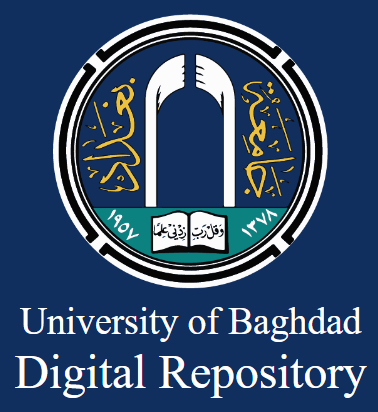The dialectic of form and meaning in postmodern art
DOI:
https://doi.org/10.35560/jcofarts1180Keywords:
dialectic, form, meaning, postmodernismAbstract
Some have considered the dialectic in form and meaning from different points of view, and dismantled them from each other, and this view is correct if we adopt according to the logic of Aristotle when it comes to dialectic, the dialectic of form and meaning has different aspects and does not share a single line in terms of conceptual meaning, the form is the appearance What the recipient sees with the help of cognitive tools, the content or content is the mental meaning, which in turn depends on his own tools, and to this extent this view is correct, and the intellectual content or meaning of the artwork or the human message that the artist wants to convey to the viewer.
The research included four chapters. The first chapter included the research problem, which was determined by the following question: How effective is the dialectic between form and meaning?
And the importance of research and the need for it 1- The mutual relationship between form and meaning helps to develop the artistic taste of the recipient through dealing with artwork and other artwork.
2- The dialectic in form and meaning contributes to the artistic taste of the recipient.
As for the goal of the research: The current research aims to define the dialectic of form and meaning in postmodern art.
And the limits of the research: 1- Objective limits: The current research is determined by studying (the dialectic in form and meaning in postmodern art) and all the products classified under this art according to its different raw materials and implementation techniques. 2- Temporal borders: (1959-2020). 3- Spatial borders: (Europe - America).
As for the second chapter, it included two topics. The first topic dealt with the dialectic between form and meaning, and the second topic included postmodern currents.
As for the third chapter, it included research procedures, and the fourth chapter dealt with the conclusions 1- The creativity and innovation of minimalist artists contributed to spreading this art in America and Europe, as it had its mechanisms, methods, and techniques at all artistic levels.
2- Leaving the familiar outside and diving deeply into the interior was a concept that minimalist art worked on in all directions, which led to a close relationship between form and meaning in this art.
Recommendations
1- Acceptance of postmodern art, especially minimalist art, as a systematic course in universities and related art institutions for its artistic, philosophical and scientific importance.
2- Enriching libraries with collections of books that document these artistic fields in proportion to the status of culture and art in the eyes of the students of these faculties.
Suggestions 1- A comparative study on the reciprocity of forms and meanings between postmodern art trends.
2- The interchangeability of form and meaning in contemporary Iraqi art.
References
Abd al-Ridha, N. J. (2012). History of Economic Thought (1 ed.). Lebanon: Dar Revival of Arab Heritage.
Abdel-Gawad, M. K. (2002). Contemporary Readings in Sociology (Vol. 1). (M. El-Gohary, Ed., & M. Khalaf, Trans.) Center for Research and Social Studies.
Abu Ismail, A. (1979). Economics. Cairo: Arab Renaissance House.
Al-Bolsi. (1980). Beirut: The Lebanese Committee for the Translation of Human Masterpieces.
Al-Hourani, M. A.-K. (2007). Contemporary Theory in Sociology (1 ed.). Irbid, Jordan: Dar Majdalawi For publication and distribution.
Attali, J. (2008). Karl Marx or the Thought of the World. (M. Sobh, Trans.) Damascus: Dar Kanaan.
Fayyad, H. E.-D. (2018). The Theory of Social Action at Max Weber (1 ed.). Library Towards an Enlightening Sociology.
Hijazi, M. (1988). Social Theories (1 ed.). Cairo: Wahba Library.
Lotfi, T. I., & Al-Zayyat, K. A.-H. (n.d.). Contemporary Theory in Sociology. Cairo: Dar Gharib for Printing and Publishing.
Matar, A. H. (1998). The Philosophy of Beauty, Its Signs and Doctrines (1 ed.). Cairo: Dar Quba for Printing and Publishing.
Omar, M. K. (2013). Contemporary Social Theory (1 ed.). Riyadh: Dar Al Zahraa for Publishing and Distribution.
Onís, F. d. (1885-1966. (1967)). Federico de Onís. Journal of Inter-American Studies, 9(1). doi:10.1017/S088531180000291X
Poltzer, G. (n.d.). The Origins of Marxist Philosophy (Vol. 2). (S. Barakat, Trans.) Beirut: Modern Library Publications.
Shehab, M. (n.d.). Pioneers of Sociology. Cairo Arabic Books: The Electronic Library.
Downloads
Published
Issue
Section
License
Copyright (c) 2023 feras mahmmod mehsen alwaan

This work is licensed under a Creative Commons Attribution 4.0 International License.













